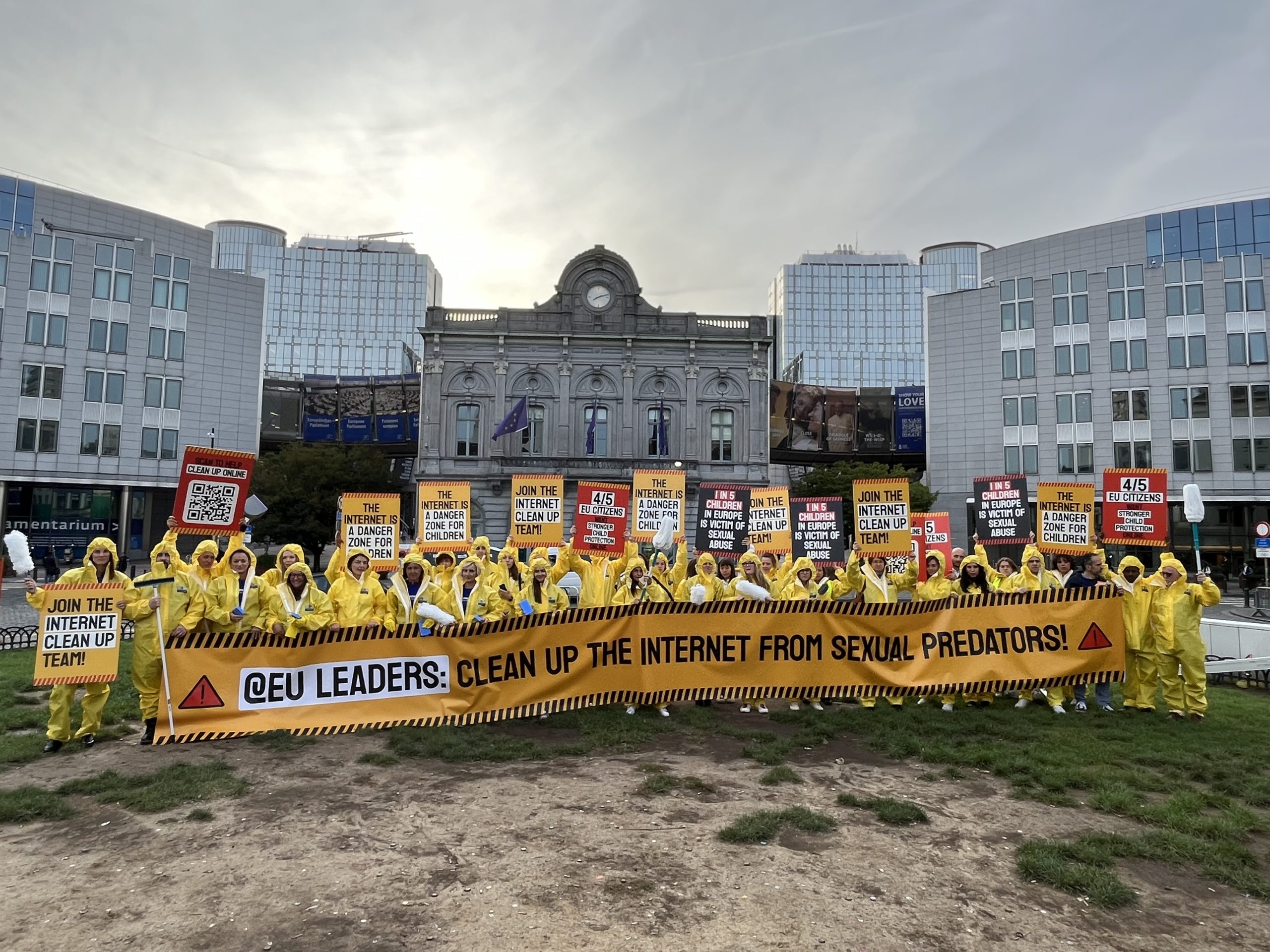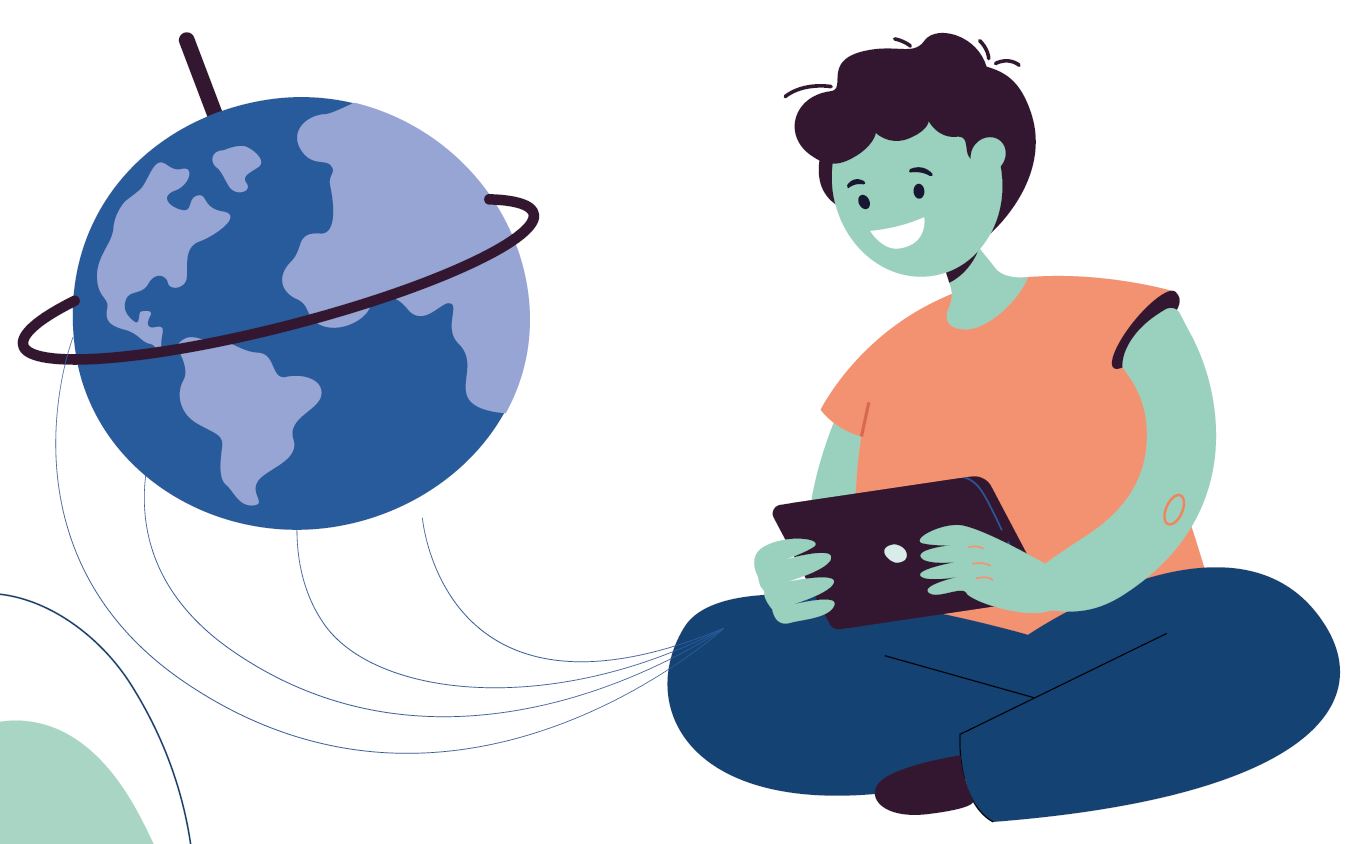Digital - Eurochild’s achievements in 2023
Annual Report 2023.
According to our latest research, children are going online for the first time at the age of 9.6 years old, despite most online platforms only being accessible to children over 13. The reality is that children are developing in online spaces that are not designed for them and as a result, pose many risks. Every second 2 images or videos of child sexual abuse are shared online. Children face cyberbullying and inappropriate content and contact which put them at risk of harm with long-term consequences in their overall well-being and development. At Eurochild, we envision digital spaces that respect children’s rights by design by protecting them from harm and abuse and empowering them to exploit the benefits of the internet while exercising their agency as digital citizens.
For this, we engage in EU and national advocacy to promote policy and legislation on children's rights in the digital environment, in particular regarding the prevention of online harm. We develop the knowledge and capacity of members and children to be engaged in Eurochild's advocacy work - including peer-to-peer learning and sharing of experiences, through Eurochild Members Taskforce on children’s rights in the digital environment. Moreover, as experts in their own lives, we bring children’s voices to the debate through our projects Protection through Online Participation (PoP) and VOICE. In 1 year, we have positioned Eurochild as a reference organization for civil society, industry and policy makers in the field of children’s rights online.
Our Achievements
Advocacy
To mark Safer Internet Day 2023, Eurochild called on European institutions to put the best interests of the child at the centre, including children's right to have a say on online and offline safety and supported the Child Safety ON Campaign asking lawmakers and tech companies to work together to stop online sexual abuse.
We held meetings with policy makers and industry and participated in numerous public events, managing to form a solid multi-stakeholder network on online child safety. Most notably, we maintained a good working relationship with the Spanish presidency of the Council of the EU, helping us to directly influence the different proposals they tabled to the rest of Member States. We joined ECLAG, a coalition of more than 60 organisations working to end child sexual abuse on and offline and worked with the LIBE committee (the European Parliament's Committee on Civil Liberties, Justice and Home Affair). In this open letter we shared our thoughts on how to strengthen the current legislation.
We have increased the pressure on the proposed EU Regulation to combat child sexual abuse and other relevant EU policies regarding children’s rights online, most notably the Digital Services Act:
We asked EU policymakers to amend the draft opinion by IMCO (the European Parliament’s Committee on the Internal Market and Consumer Protection) to include better measures to protect children online. The opinion report significantly weakened the EU proposal to prevent and combat child sexual abuse. In a similar line, we responded to the European Parliament Research Service (EPRS) and the European Council Legal Services’ assessments criticizing the feasibility of the proposal, fearing that this could put at risk the huge progress made by the European Commission. We succeeded in tabling amendments at the LIBE Committee enhancing the safeguarding of children’s rights in the proposal, although the amendments fell in final committee vote. As the final report adopted failed to comply with minimum standards of child protection online, we responded with an open letter in coalition with ECLAG.
Fabiola Bas Palomares was interviewed by CNAPE, la fédération des associations de protection de l'enfant, on Eurochild's views regarding the proposed EU Regulation to combat child sexual abuse, aiming to shed a light of why this Regulation is important in France, country which remains sceptical to the Regulation. In November, a key moment ahead of a possible Council of the EU vote, we published a statement to maintain the pressure.
On 19 September 2023 we met survivors, young people, other child rights organisations, and other advocates from across the European Union in Brussels to ask leaders to ‘clean up the internet’ from sexual predators and protect children online.
On the occasion of Italy’s National Day against Paedophilia and Child Pornography, Eurochild President Marie-Louise Coleiro Preca attended the event hosted by Eurochild member Telefono Azzurro in Rome, and spoke about the fact that “voluntary detection and reporting, by companies, has proven insufficient to adequately protect children. Policymakers should hold companies accountable.”
We renewed our commitment to the euCONSENT project by joining the Advisory Board for Phase II. Eurochild’s role is to offer feedback on the project’s progress from a child rights perspective to promote age verification and assurance systems that protect the full spectrum of children’s rights online.
We joined the Special Group on Code of Conduct for age-appropriate design, an important step towards the implementation of the Digital Services Act (DSA).
We have strengthened national regulations addressing online safety, through capacity building with members and other activities such as our contribution to Ireland’s first binding online safety code by providing input to the Coimisiún na Meán, the Ireland’s Regulator for Broadcasting, On-demand and Online Safety.
Together with the VOICE project consortium, formed by Eurochild, ECPAT International, and Terre des Hommes Netherlands, we launched the report “Behind the screens: Early Findings from the VOICE Research” delving into the challenges parents and caregivers face addressing online child sexual abuse and highlight their call for increased support from all stakeholders to protect children online. A total of 316 children and 6618 caregivers were consulted.
Member Capacity Building
We led together with ECPAT International and Missing Children Europe, and with support from ECLAG, a national activation campaign across Europe providing the tools to members of the three organisations to advocate for the EU proposed Regulation to combat child sexual abuse at national level, aiming to influence the decision of the ministers to support the Regulation in the Council of the EU.
We have held numerous meetings with members to support their knowledge and provide assistance in navigating the complex world of combatting child sexual abuse online through automated detection tools, which is at the core of the EU Regulation to combat child sexual abuse. We created an engaged group of members working on the topic and organised 9 webinars with Eurochild members to build their capacity to advocate for child safety online more broadly and produced 5 detailed policy briefs with relevant EU policy updates.
Leveraging children’s voices
Together with ECPAT International and Terre des Hommes Netherlands, we consulted 483 children and 6,600 caregivers on matters related to online safety. To launch it, we co-organised the webinar ‘Children's voices on online safety: what do we still need to learn to tackle effectively online child sexual exploitation and abuse?’ and later in the year launched the report “Behind the screens: Early Findings from the VOICE Research” delving into the challenges parents and caregivers face addressing online child sexual abuse and highlight their call for increased support from all stakeholders to protect children online. The webinar and the launch proved to bring together civil society, including also academia, in discussing the available research on children’s safety online and the role of caregivers in protecting children from sexual abuse online.
We also partnered with the UN in the organisation of Regional Dialogues with children on online violence. During the discussion three representatives of Eurochild’s Children’s Council, as well as children from our member organizations, voiced their opinions and concerns.





